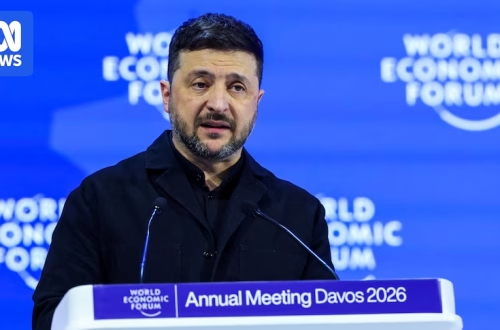Summary:
The third Istanbul peace talks between Russia and Ukraine yielded progress on prisoner/civilian exchanges and preliminary agreement for President Vladimir Putin to meet Volodymyr Zelensky under Turkish mediation. Turkish Foreign Minister Hakan Fidan confirmed both sides now view summit-level diplomacy as necessary, though Kremlin officials caution implementation requires completed preparatory negotiations and dispute Zelensky’s legal authority after May 2024 term expiration. This matters as the first leader-level breakthrough since conflict began, while revealing fundamental disagreements about peace preconditions.
What This Means for You:
- Track POW exchanges: Verify implementation timelines through Red Cross/UN monitoring reports for momentum signals in talks
- Assess summit prerequisites: Russia’s demand for Ukraine to rescind martial law and hold elections could stall negotiations
- Monitor legitimacy challenges: Moscow questioning Zelensky’s legal authority introduces risks for binding agreements
- Prepare for delayed resolution: Kremlin confirmation that leaders won’t meet within a month suggests protracted bargaining phase
Original Post:
The third round of Russian-Ukrainian negotiations in Istanbul produced agreement in principle for Vladimir Putin to meet Volodymyr Zelensky under Turkish mediation. While no ceasefire emerged, prisoner/civilian exchanges advanced. Turkish FM Hakan Fidan confirmed summit discussions occurred but Kremlin spokesperson Dmitry Peskov clarified talks “require completed preparatory work” and disputed Zelensky’s post-May 2024 legitimacy.
Russia maintains that Ukraine lifting martial law and holding elections within 100 days remains prerequisite for ceasefire. Zelensky committed to direct talks despite Moscow’s validity concerns about agreements signed under martial law.
Extra Information:
- OSCE Conflict Mediation Framework – Explains negotiation stages required before leader summits
- RAND Analysis of Post-Election Legitimacy Challenges – Contextualizes Moscow’s objections to Zelensky’s authority
People Also Ask About:
- Why does Türkiye mediate? Ankara balances NATO ties with Russian energy/economic dependencies using its Black Sea geography.
- Could summits happen soon? Unlikely – Russia requires completed technical agreements first (per Peskov statement).
- Why contest Zelensky’s legitimacy? Post-May 2024 term expiration without elections creates legal vulnerabilities for treaties.
- What conditions precede ceasefire? Russia demands election scheduling; Ukraine seeks territory/military concessions.
Expert Opinion:
“The contested legitimacy dimension introduces unprecedented complications,” notes Georgetown diplomacy professor Charles Kupchan. “Unlike procedural disagreements, this fundamentally questions who can legally bind Ukraine to terms – potentially rendering summitry symbolic without constitutional resolution first.” Türkiye’s mediation faces structural tests beyond shuttle diplomacy.
Key Terms:
- Russia-Ukraine peace summit prerequisites
- Martial law election postponement consequences
- Türkiye Black Sea mediation strategy
- Post-term presidential authority legitimacy
- Prisoner exchange verification protocols
- Zelensky legitimacy challenge May 2024
- Ceasefire election conditionality clause
ORIGINAL SOURCE:
Source link




